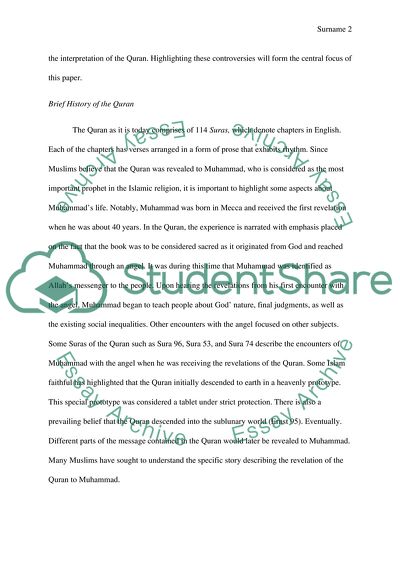Cite this document
(Critical Questions Surrounding the Quran and its Interpretation Book Report/Review Example | Topics and Well Written Essays - 2250 words, n.d.)
Critical Questions Surrounding the Quran and its Interpretation Book Report/Review Example | Topics and Well Written Essays - 2250 words. https://studentshare.org/religion-and-theology/1843713-carl-ernsts-mona-siddiquis-and-quran-book-review
Critical Questions Surrounding the Quran and its Interpretation Book Report/Review Example | Topics and Well Written Essays - 2250 words. https://studentshare.org/religion-and-theology/1843713-carl-ernsts-mona-siddiquis-and-quran-book-review
(Critical Questions Surrounding the Quran and Its Interpretation Book Report/Review Example | Topics and Well Written Essays - 2250 Words)
Critical Questions Surrounding the Quran and Its Interpretation Book Report/Review Example | Topics and Well Written Essays - 2250 Words. https://studentshare.org/religion-and-theology/1843713-carl-ernsts-mona-siddiquis-and-quran-book-review.
Critical Questions Surrounding the Quran and Its Interpretation Book Report/Review Example | Topics and Well Written Essays - 2250 Words. https://studentshare.org/religion-and-theology/1843713-carl-ernsts-mona-siddiquis-and-quran-book-review.
“Critical Questions Surrounding the Quran and Its Interpretation Book Report/Review Example | Topics and Well Written Essays - 2250 Words”. https://studentshare.org/religion-and-theology/1843713-carl-ernsts-mona-siddiquis-and-quran-book-review.


